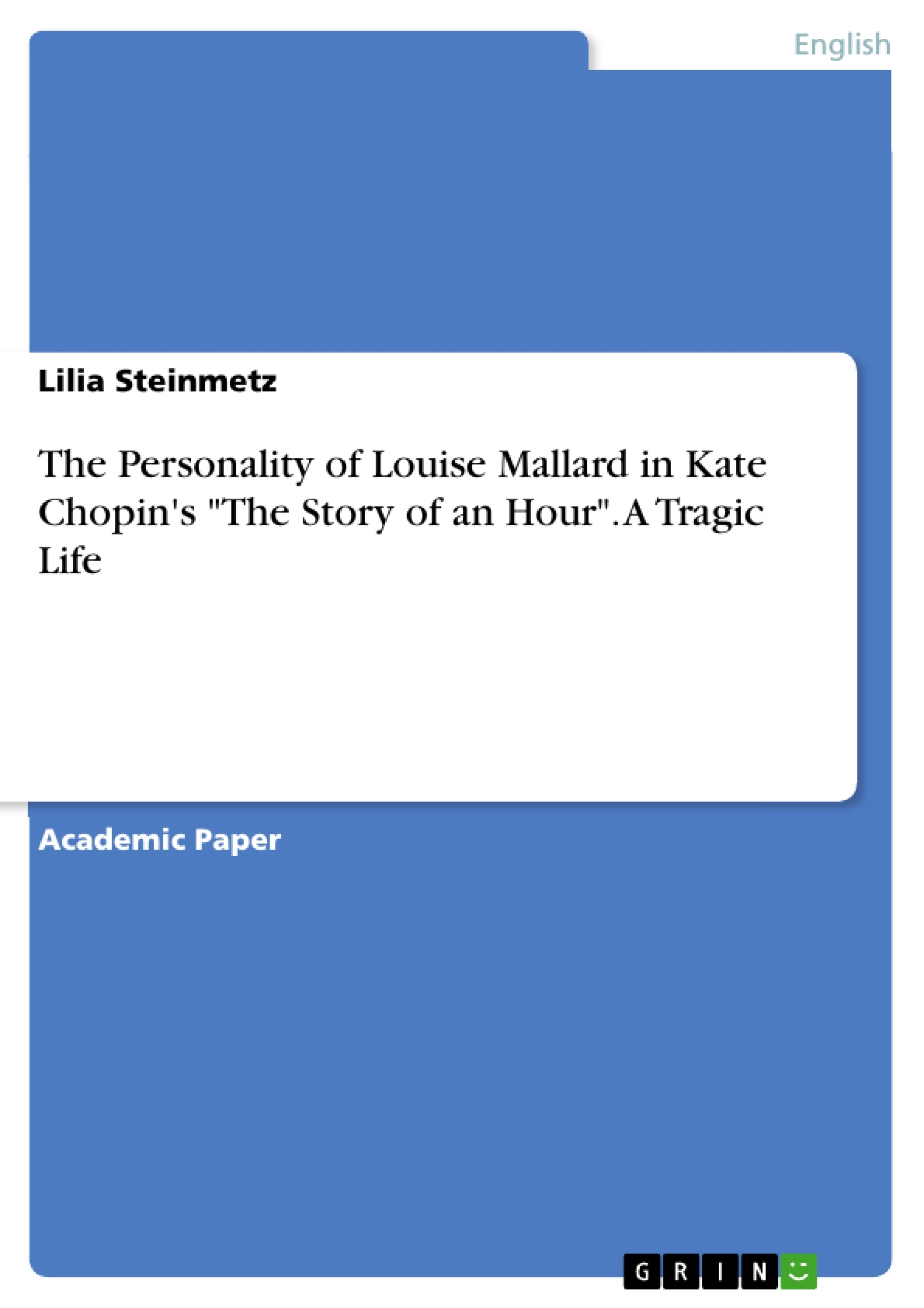This term paper will analyze Chopin’s short story from a different perspective, than how many scholars have analyzed the protagonist’s death before, which is as a critique of the patriarchal society she is living in. It will focus on the approach Lawrence I. Berkove treats in his work "Fatal Self-Assertion in Kate Chopin’s "The Story of an Hour"" where he proves that this story is neither about patriarchy nor about marriage, but about the protagonist, Louise Mallard, herself.
As she is an unreliable narrator who does not give clear evidence for suppression in her marriage, in fact who does not give much information about her husband at all, it can be suspected that Chopin’s story actually centers Louis Mallard’s personality. This is why I argue that Louise Mallard is a tragic character who could never be happy, as her understanding of freedom can never be achieved in real life, she loves nobody but herself, and she is physically too weak to face the difficulties of life.
Table of Contents
- Illusions: The Protagonist's Perception of Freedom
- Longing for being part of her social environment builds a sharp contrast to her inability to be part of a relationship.
- Egocentrism: self-love that leaves no room for others
- The protagonist loves nobody but herself.
- Physical illness: the protagonist and her cardiac problem
- Kate Chopin's protagonist is physically too weak to face the difficulties of life.
Objectives and Key Themes
This term paper analyzes Kate Chopin's short story "The Story of an Hour" from a different perspective than the traditional interpretations that focus on societal criticism. It examines the character of Louise Mallard, exploring her personality and arguing that she is a tragic character who cannot achieve happiness due to her unrealistic understanding of freedom, her self-centeredness, and her physical weakness.
- Louise Mallard's perception of freedom is unrealistic and unattainable in real life.
- Mallard's self-love is extreme and leaves no room for others.
- Mallard's physical illness significantly influences her personality and limits her ability to cope with life's challenges.
- The story explores the theme of individual desires and the limitations imposed by societal expectations and personal limitations.
- The paper delves into the complexity of human relationships and the difficulties of achieving true contentment within them.
Chapter Summaries
The first chapter explores Louise Mallard's perception of freedom and how it contrasts with her inability to engage in healthy relationships. It analyzes her feelings towards her husband, her lack of communication skills, and her desire for self-sufficiency. The second chapter focuses on Mallard's egocentric nature, highlighting her self-love and her indifference towards others. It discusses her distorted view of love and her prioritization of self-assertion over genuine connections. The final chapter analyzes Mallard's physical weakness and its impact on her ability to face life's challenges. It discusses the symbolism of her surname and its connection to her heart condition, exploring how her illness shapes her actions and perceptions.
Keywords
The primary keywords and focus topics of the text include: Louise Mallard, "The Story of an Hour," Kate Chopin, freedom, self-love, egocentrism, physical illness, tragic character, human relationships, societal expectations, self-assertion, and unattainable desires.
- Citar trabajo
- Lilia Steinmetz (Autor), 2021, The Personality of Louise Mallard in Kate Chopin's "The Story of an Hour". A Tragic Life, Múnich, GRIN Verlag, https://www.grin.com/document/1248175




